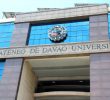 As classes open, teachers contend with poor school facilities while parents are confronted with the sheer economics of educating their children. And the kids? The education department inSouthern Mindanao has found a novel, if exploitative, way to make them pay for the government�s negligence and shortcomings.
As classes open, teachers contend with poor school facilities while parents are confronted with the sheer economics of educating their children. And the kids? The education department inSouthern Mindanao has found a novel, if exploitative, way to make them pay for the government�s negligence and shortcomings.
By Cheryll D. Fiel
davaotoday.com
Related stories:
DAVAO CITY — As school administrators are trapped in the cyclical problems of dilapidated or unfinished classrooms or the lack of facilities as classes open, parents are themselves confronted with a more pressing headache: how to meet the school needs of their children.
The times have really become more difficult these days, as parents can hardly even send their children to public schools.
Proof of this is the decline in the enrollment in public schools, despite the news that more students from private schools have shifted to public schools. Department of Education (DepEd) regional director Diamar Kadon said that, as of last Friday, some 1.7% of the total number of students they had expected this school year had not enrolled.
In a school in Panabo, Kadon said, some 1,000 enrollees were expected but only 200 turned up.
Kadon attributed this to a variety of factors, one of which is late enrollment. Another is the cost of enrollment, school uniforms, school supplies, daily transportation, as well as the increasing cost of basic commodities, some of which are made asbaon for children.
Kadon said that while no student is supposed to be hindered from enrolling in school just because the parents could not afford it, some teachers, unfortunately, still withhold the release of grade cards if parents could not pay school fees such as PTA dues.
PTA dues range from 300 to 500 pesos and these are on top of the mandatory fees imposed by the DepEd, such as anti-TB dues. Kadon said they have monitored some cases and have asked the teachers to explain their action.
But the Kahugpungan sa mga Magtutudlo ug Kawani sa Edukasyon sa Mindanao (Kamkem), a local teachers� organization affiliated with the Alliance of Concerned Teachers (ACT), said this is easy for the DepEd to say.
“If only the teachers can enroll even those students who could not pay their dues. But we need these PTA dues to maintain our classrooms,” Elenito Escalante, Kamkem�s vice-chairman, told davaotoday.com.
He said the PTA dues are practically taking care of the upkeep of schools and facilities, including payment for security gaurds, not the DepEd budget. “The PTA dues pay for the guards, the toilet cleaners, the brooms and floor wax so the students can be comfortable somehow,� he said. “How can the students be comfortable in the classrooms when we also even have to put up with overcrowding due to lack of classrooms?�
In Escalante’s public school, for instance, they are at a loss on how to accommodate the increase in the number of students who have transferred to their school from private schools. They have between 60 and 70 students per classroom when the ideal number per class is only 35 students.
Textbooks are another problem. In some cases, Escalante said, two to three students, sometimes four, have to share one textbook.
But Kadon said they have found a way to solve the problem, which he said the DepED thinks “can help schools generate funds.”
Called the “Samahang Sikap,” Kadon explained that the idea is to let students do work at a vacant lot in or anywhere outside the school which the students could convert into a vegetable patch or garden.
“The objective is to generate funds for the school,” Kadon said this week during the regular Kapehan sa Dabaw press forum, adding that part of the proceeds of the harvest could go to the students, or, if they could agree on it, give the entire proceeds to the school.
The teacher may group the class into two or three and administer the work on a vegetable patch depending on how many hours they would agree on, Kadon explained. He said this idea had already been worked out in the �90s.
Aside from vegetable farming, students may also engage in planting trees for a fee, as Kadon suggested. Either the Department of Environment and Natural Resources (DENR) or private landowners could hire them.
But Kamkem deplored the idea, calling it exploitative. As it is, Escalante said, students could hardly even learn because of the poor conditions in their schools.
Escalante thinks students should not be made to pay for the state’s negligence. “The state is supposed to provide this basic right for the students. Instead, they are even exploiting these poor sons and daughters of farmers and laborers,� Escalante said. When not in school, these children could be helping their parents, and yet the DepEd is exploiting them by requiring them to work to pay for the government�s shortcomings, Escalante said.
Kadon, meanwhile, announced that they would be implementing a “double shifting scheme.” This means a class of 100 students would be divide into two. Fifty would hold classes in the morning and the other half of the class would have their session in the afternoon.
To this, Escalante said: “At the end of the day, the tired teachers would become like wilted vegetables.� (Cheryll D. Fiel/davaotoday.com)










